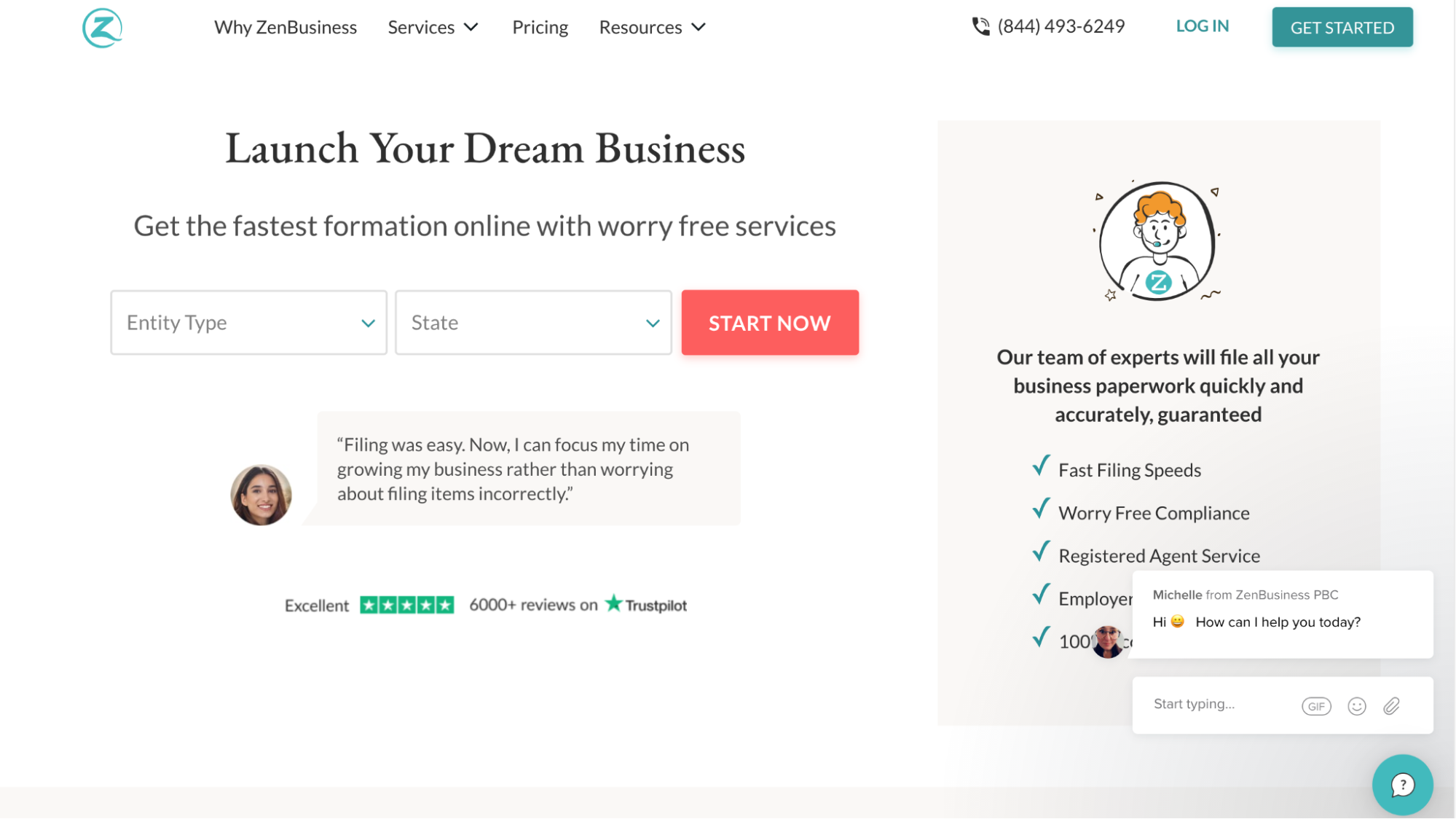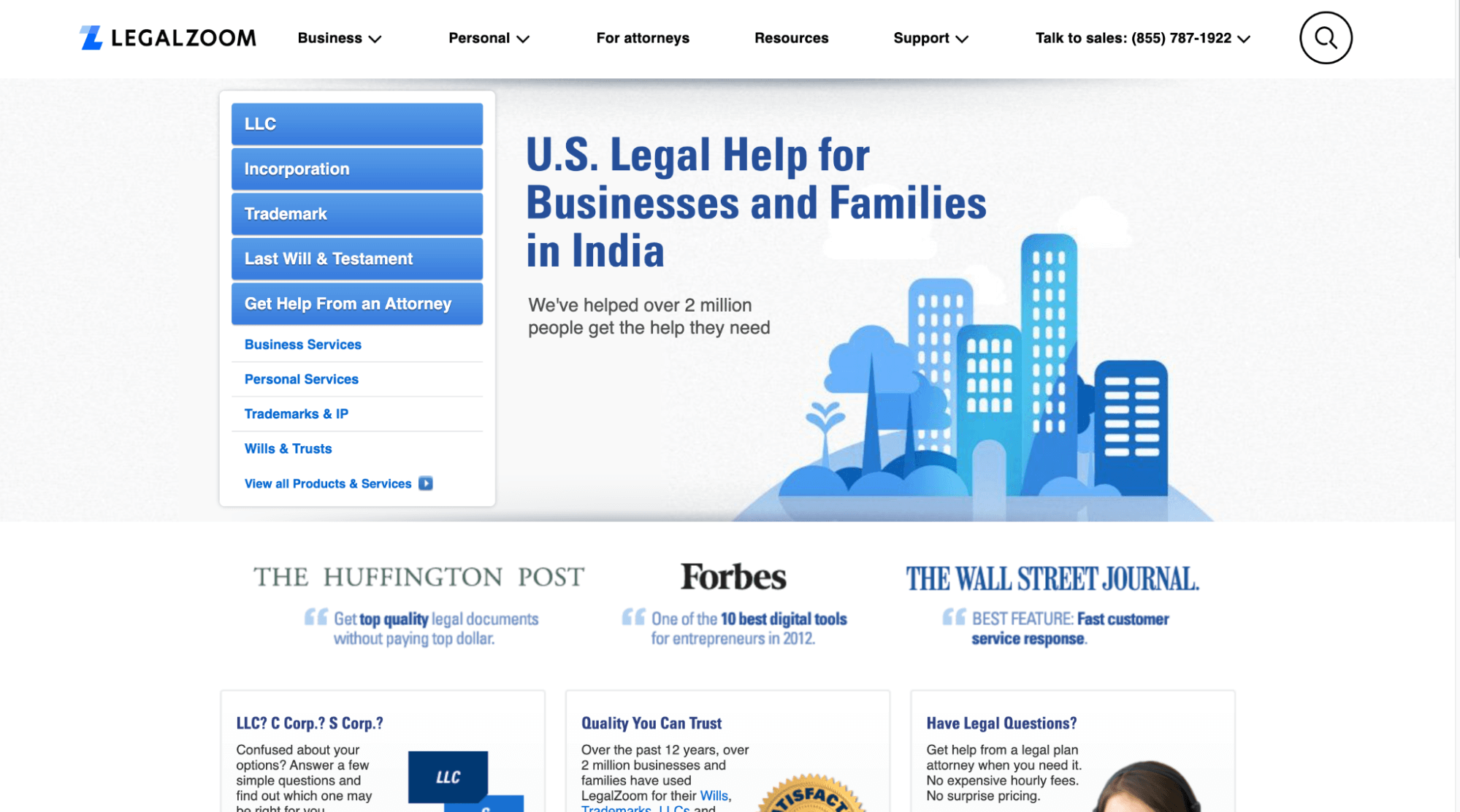Liabilities and taxes are a business reality. You want to avoid them, but first, you must decide whether to incorporate your business as an LLC or an S-Corp.
LLCs are easy to set up and convenient, but S-Corps helps you save money. While the IRS doesn’t recognize the LLC structure, S-Corps have strict rules to ensure business compliance.
Every business structure has its pros and cons. So how do you make the right decision?
In this LLC vs. S-Corp guide, I’ll help you decide between the two by outlining the similarities, differences, and benefits. Ready?
What are LLCs and S-Corps?
The first step is to know what we mean by the terms ‘LLC’ and ‘S-Corp.’
What’s an LLC?
An LLC, short for Limited Liability Company, is a business structure that shields the owners’ personal assets—otherwise known as “members.”
According to CT Corporation, “An LLC is a hybrid entity, created to provide the liability benefits of a corporation, with the tax benefits of a partnership.” In other words, LLC members can enjoy a corporation’s limited liability feature, along with a flow-through taxation facility that’s only extended to partnerships and sole proprietorship owners.
Generally, whenever a business ends up in legal trouble or gets sued by a creditor, the plaintiff can lay a claim on the business’s and the owner’s assets. In the case of LLCs, creditors are prohibited from going after the former’s personal assets. This is known as limited liability protection.
Starting an LLC is the simplest way of structuring your business. Plus, as it’s very flexible and easy to manage, many entrepreneurs choose this business structure over other entities.
What’s an S-Corp?
Have you ever heard of a C-Corp? An S-Corp is the “light” version of it.
An S-Corp or S Corporation is a corporation type that’s set up according to specific Internal Revenue Code requirements. This allows income and other credits, deductions, and losses to pass directly to shareholders without owners having to pay federal corporate taxes.
Small business owners usually opt for the S-Corp structure because of its 100 or fewer shareholder limit. But, in addition to this, a business must meet several other requirements to qualify for an S Corporation status.
Getting this status gives owners access to the regular benefits of incorporation while enjoying a partnership’s tax exemption privileges.
The Basics of LLCs vs. S-Corps
Let’s review the differences and similarities between the LLC and S-Corp business structures.
Management
Right off the bat, LLCs and S-Corps have different management structures.
Depending on the number of members, an LLC can be a partnership or a sole proprietorship (if there’s only one member). What’s more, when a group of managers runs the company, an LLC resembles a corporation set up as the members aren’t required to participate in the daily business decisions.
S Corporations have directors and officers, both of which have different functions. Let me explain this in more detail.
The shareholders of an S-Corp elect the board of directors to look over corporate formalities. The board will be responsible for making major decisions and not the shareholders. In turn, the directors elect officers (CEO, COO, CFO, etc.) whose jobs will be to handle daily business operations and report to the board.
Taxation
Let’s make one thing clear: An S-Corp isn’t a business entity like an LLC—or a partnership, corporation, or sole proprietorship, for that matter.
S Corporations are an elected method of deciding how your business will be taxed. Getting an S-Corp tax status helps members avoid double taxation, which involves a company paying taxes on the earned profit. Then, the shareholders pay taxes on their personal earnings, including dividends.
Interestingly, an LLC can be either an S-Corp or a C-Corp. It’s up to the business owner to decide how they want to be taxed.
An LLC is generally a matter of state law, while an S-Corp is a matter of federal tax law. The next point of difference between the two is self-employment taxes. This is the big one, guys!
Any income earned by an LLC is considered taxable income. All LLC members have to pay self-employment taxes—Social Security and Medicare taxes—directly to the IRS. Although the tax rates are changed every year, the ongoing self-employment income tax rate for 2020 is 12.4% for Social Security and 2.9% for Medicare as per the IRS. LLCs must deduct these two amounts and pay them to the IRS to comply with the law.
Under an S-Corp structure, the shareholders receive a salary while the business pays its payroll taxes—something that can be deducted as a business expense from the company’s total taxable income. All leftover profits, if any, are then distributed to shareholders as dividends, which are subject to a lower tax rate than regular income.
Shareholders, Subsidiary, and Stock
S Corporations cannot have more than 100 shareholders. There’s no such restriction for an LLC, which allows the entity to have an unlimited number of members.
Furthermore, while an LLC can have non-US citizens as members and are allowed subsidiaries without facing restrictions, S-Corps must have U.S. citizens as shareholders and follow the different subsidiary restrictions.
S-Corps can issue stock, though—something that LLCs cannot. That said, the former can only issue one class of stock.
Entity Similarities
In addition to the differences, you must be aware of the various similarities between an S-Corp and an LLC.
- Separate Entities. Both an LLC and an S-Corp are separate business entities created by filing papers with the state.
- Limited Liability Protection. Business owners aren’t personally liable for their company’s debts and obligations in both cases.
- Same State Requirements. LLCs and S-Corps must fulfill mandatory state requirements, including filing annual reports and paying necessary fees, among others.
- Pass-Through Taxation Facility. Both business structures are generally pass-through tax entities. But while an LLC only has to file a business tax return if there’s more than one owner, S-Corps have a compulsory business tax return filing.
5 Tools to Improve LLC and S-Corp Incorporation
Below, I’ve compiled a list of the five best online incorporation and LLC services that make business formation easy and convenient. You can also review our guide to the best LLC services to get more tools and information to find the service best for your needs.

If you’re looking for a fast and easy way to form your business, look no further than ZenBusiness.
This software service provides excellent incorporation services, LLC services, and registered agent services, along with several extra perks like DBA names, business name reservations, and EIN services.
I recommend ZenBusiness for its LLC services. You can use the service to name your company and choose a registered agent and apply for an EIN. They also take care of all the crucial documentation needed to start an LLC.

IncFile provides users with a generous offering of features and an excellent support team—all available at a value-for-money price.
This online incorporation service offers a free plan alongside its paid plans to cater to people of all budgets. Irrespective of whether you choose an S-Corp or an LLC, all plans will have company name availability verification, online status tracking, next-day article processing and preparation and filing, free tax consultation services, and lifetime customer support.
What’s more, you have the flexibility to add on services (EIN, IRS Form 2553 filing, etc.) to your base package.

Formerly known as My New Company, MyCompanyWorks could be a viable option for those wanting to use a smaller incorporation service and desiring more hands-on support.
It has the same LLC formation service as ZenBusiness, in addition to several excellent features. There’s a set-up wizard to help you organize your affairs after the formation and a next-day processing facility for important documents.
Additional features include personalized organizational meeting minutes and corporate bylaws.

LegalZoom is an excellent online software to get reliable legal assistance for both corporate and personal reasons anytime, anywhere—provided you’re willing to pay the high registration cost.
In addition to a well-designed business formation process, the software has detailed educational resources that cover hundreds of questions to help you understand what you’re doing and why you’re doing it.
LegalZoom is also a leader in terms of software quality. Every step in the process is visually appealing and well-organized, with explanations about every decision and its benefit.

Harbor Compliance is a leading LLC service that offers clients a compliance specialist to walk them through every step of business formation. Anytime you have a question, your specialist will always be available to answer your queries whenever you want.
It tries to convey deep knowledge to customers, which can be particularly helpful for businesses operating in the architecture, engineering, pharmaceutical, energy, and construction niches.
The security of your sensitive information is a top priority of Harbor Compliance as well. Their website is protected by Norton Web Security to regularly scan malware and encrypt data, while Trustwave helps validate online vendors.
3 Tricks to Decide Between the LLC vs. S-Corp Debate
Here’s a list of questions, answering which can help you decide between an LLC and an S-Corp.
Do you want to sell your company?
Selling a single-owner LLC is more straightforward than selling an S-Corp.
All you need to do is contact an attorney to create the bill of sale and ensure everything is done properly. Let’s not forget you can have any number of shareholders you want—something that isn’t possible in the case of an S-Corp.
Can you handle being under constant scrutiny?
Getting an S-Corp status can help you save some serious money.
This also means you’ll always be on the IRS’s radar. So you cannot be too cautious when you’re an S-Corp owner, as even a single mistake can prove to be dangerous. Contrarily, owning an LLC is more laid-back and less complicated.
Do you want to limit your shareholders?
As you know, S Corporations have a maximum limit of 100 shareholders. This can be particularly helpful for small business owners who don’t plan on expanding on a large scale. Plus, the structure also emphasizes shareholder input.
What to Do Next
After deciding between LLC vs. S-Corp, sign up with an incorporation service tool to finally launch your business. While you can pick any tools from my top recommendations above, there are several other software services available on the market.
Once your company is formed and all documentation filed, you can focus on boosting sales and generating income from your business.
Don’t forget to check out the following QuickSprout guides to ensure your business’s success:






